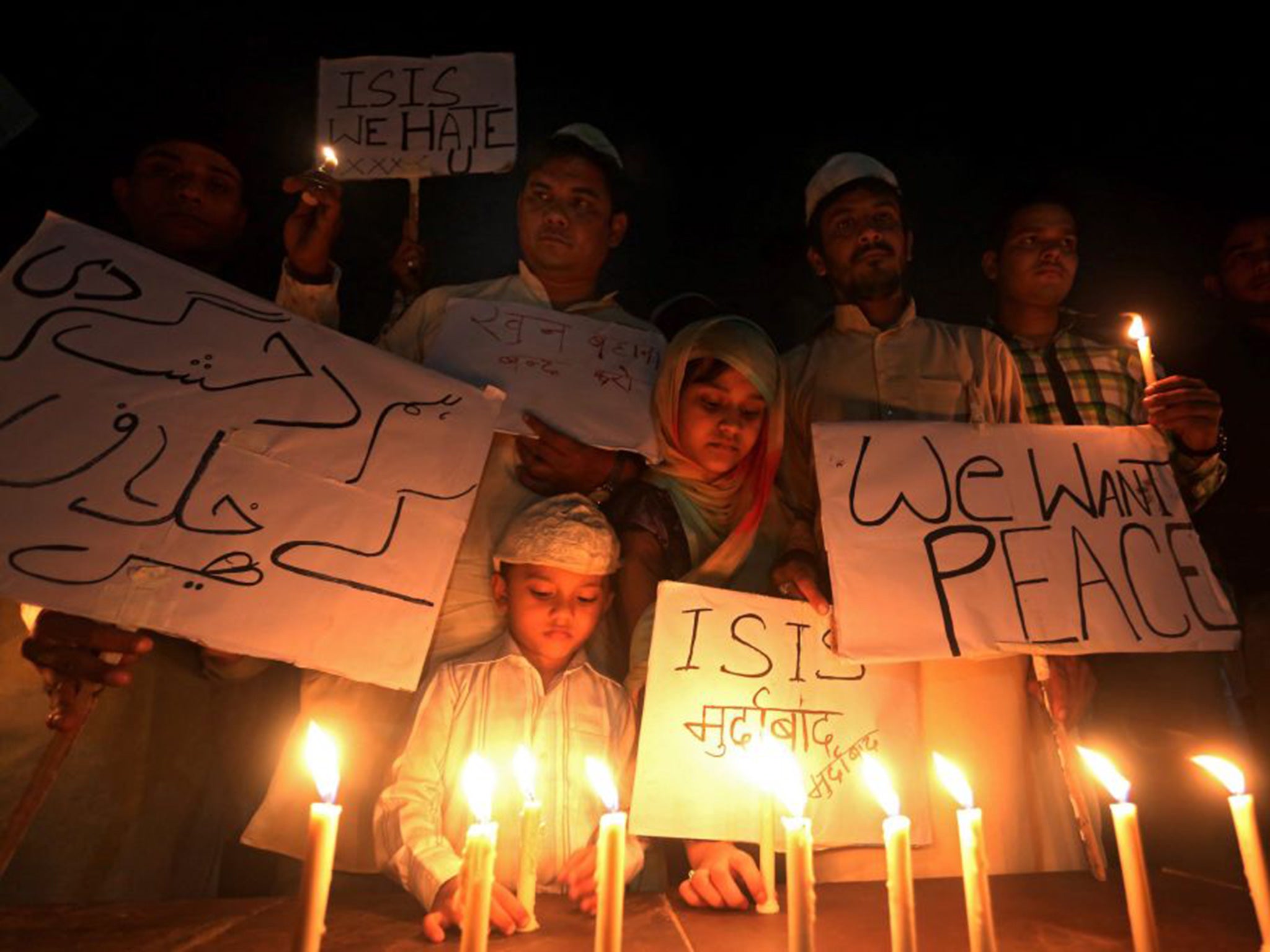Paris attacks: Muslims shouldn't need to speak out against the violence
Too many people don't seem to comprehend the difference between the Isis and Islam

Your support helps us to tell the story
From reproductive rights to climate change to Big Tech, The Independent is on the ground when the story is developing. Whether it's investigating the financials of Elon Musk's pro-Trump PAC or producing our latest documentary, 'The A Word', which shines a light on the American women fighting for reproductive rights, we know how important it is to parse out the facts from the messaging.
At such a critical moment in US history, we need reporters on the ground. Your donation allows us to keep sending journalists to speak to both sides of the story.
The Independent is trusted by Americans across the entire political spectrum. And unlike many other quality news outlets, we choose not to lock Americans out of our reporting and analysis with paywalls. We believe quality journalism should be available to everyone, paid for by those who can afford it.
Your support makes all the difference.While many Muslims around the world have publicly condemned the terrorist attacks that struck Paris on Friday, others have argued that Muslims didn't need to specifically speak out against the attacks.
There are more than 1.6 billion Muslims in the world - nearly a quarter of the global population - living all kinds of lives and espousing all kinds of political and religious beliefs. Just as most people don't point a spotlight at Christians to condemn the actions of the KKK, or at Buddhists for the monks who are slaughtering people in Myanmar, or white people for slavery, so the argument goes, it isn't the special responsibility of Muslims to apologize for a very radical fringe group.
Yet this is hardly the majority opinion in America, where a lot of people don't seem to know the difference between the Isis and Islam. Since I posted an article on Sunday describing how Muslims around the world condemned the Paris attacks, I've received countless responses via e-mail and Twitter broadly equating Islam with terrorism.
One of the best take-downs of this idea comes from Reza Aslan, an Iranian-American writer and professor at the University of California. This interview of Aslan by CNN is an old one, but it pretty perfectly complements the current discussion over Islam and terrorism.
In the video, Aslan dispels the idea that we can use isolated cases like terrorist attacks by the Islamic State or stoning in Pakistan to describe "Muslim countries" more broadly. "We're using two or three examples to justify a generalization. That's actually the definitely of bigotry," he says.
Islamist fundamentalism is a worrying problem, and terrorism, stoning, female genital mutilation and other brutal practices happening in Muslim-majority states like Saudi Arabia, Iran and Pakistan should be condemned and criticized by everyone, Aslan says.
"But to say 'Muslim countries,' as though Pakistan and Turkey are the same, as though Indonesia and Saudi Arabia are the same, as though somehow what is happening in the most extreme forms of these repressive countries, these autocratic countries, is representative of what is happening in every other Muslim country, it is frankly - and I use this word seriously - stupid," he says. "So let's stop doing that."
Washington Post
Join our commenting forum
Join thought-provoking conversations, follow other Independent readers and see their replies
Comments